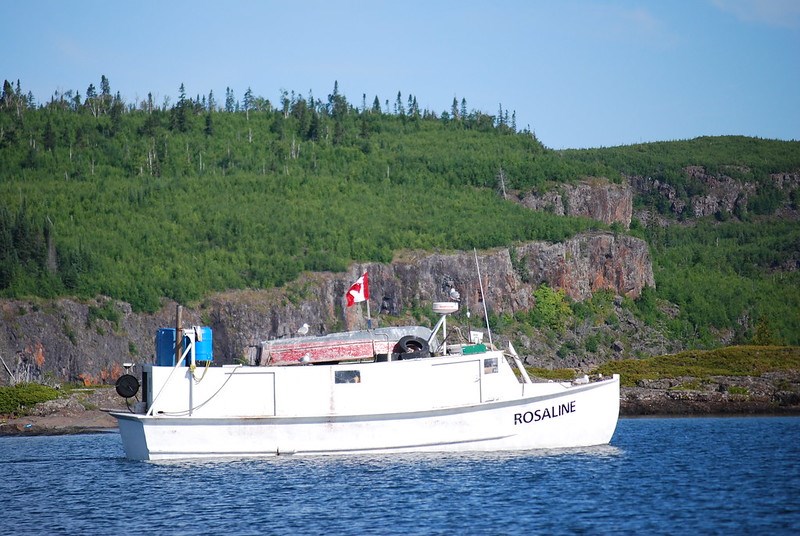THUNDER BAY — The largest lake in the world by area produces abundant quantities of fish, but the amount that's processed for local consumption in the Thunder Bay area is surprisingly little.
A team that includes researchers from Lakehead University is looking into the reasons for the low profile of Lake Superior fish, and how its role in the area's food system might be enhanced.
"One of the big questions we started with was 'Why is is to hard to buy local fish in this region?', said Charles Levkoe, Canada Research Chair in Sustainable Food Systems and Director of the Sustainable Food Systems Lab at Lakehead.
According to Levkoe, there are currently only three commercial fish harvesters in the Thunder Bay area, and most of their catch is exported to the United States.
He said one major company is buying the fish, and it's primarily going to Chicago.
"Everyone keeps telling us it gets sold as gefilte fish, which is chopped up fish and pickles. It's funny, you know. The fish up here is so incredible. To sell it into the States where it's basically smashed up and mixed up with everything else...it could be from anywhere. It doesn't even matter what it is," Levkoe lamented in an interview with Tbnewswatch.
He doesn't fault the commercial harvesters, saying "They're trying to survive. They're trying to get any price they can get for it."
Levkoe noted that, decades ago, commercial fishing stations dotted the shoreline north and east of Thunder Bay.
Lake Superior fish "was such a central part of people's lives here," but that changed over the years, he said.
The outlook for the remaining commercial fishing operations all around Lake Superior is questionable.
"When we talk to fishers, they are getting older, getting tired. It is thankless, difficult work, and they are getting so little money for it. It's unfortunately a dying profession," Levkoe said.
Noting that farming faces similar challenges, he said it raises serious implications for food security in this region.
"What are people going to eat? Most of our diet in Thunder Bay, and especially when you go farther north, comes from imported foods. That's a huge problem, you know, if a bridge gets cut and you can't bring food up, but also for livelihoods of people."
It's why the research project is looking through a "fish as food" lens.
Levkoe said "Instead of just seeing fish as a resource to be managed, or something taken out of the water for profit, thinking of it as part of the food system really changes not just how we talk about fish but also who we talk to."
That means, he said, people other than fishers or distributors, such as those with historical, cultural or ceremonial links to fishing.
The study team has launched a survey–Sustainable Fisheries in the Lake Superior Region–to learn more from the people and organizations involved in the fishery on both sides of the international border.
Harvesting, processing, transportation, distribution, marketing, retail, food services (restaurants or catering), nutrition and health, as well as resource management will all be considered.
Levkoe said the survey is the start of making connections among some of the groups and individuals around the lake.
"Not just the fishers, but the people who make policy, sell the fish, cook the fish, and even write about fish. All these people who aren't normally included in management-based research."
The researchers, who rely on grants for their work, have already published some academic articles.
More of these will follow as the project collects new information.
In the coming weeks, they expect to publish a major article documenting how fisheries management is dominated by top-down approaches, to the ultimate disadvantage of access to local fish for consumption.
Last year the team also received funding to produce a documentary with Batchewana First Nation at the eastern end of the lake.
Filming was done this past summer.
"They're really thinking through about how they're using fish, not just as a source of protein but as part of their whole culture and tradition," Levkoe said.
"That's another way we're going to share some of this information."
